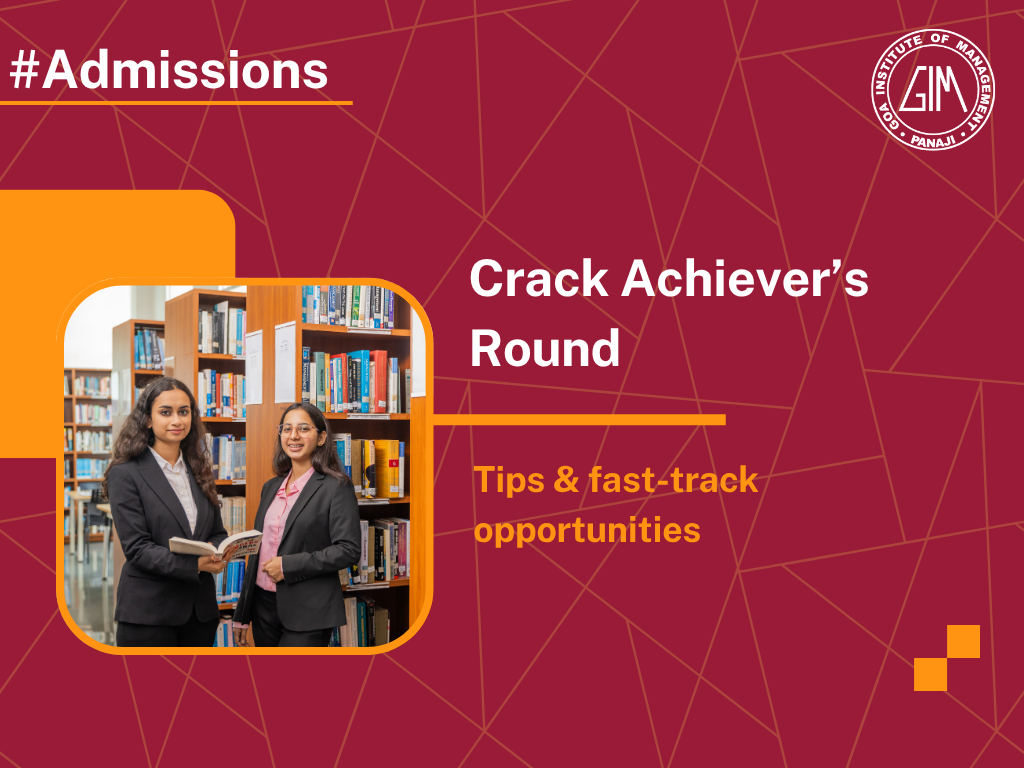Posted by
-
Workshop
-
Summer Research Internship Program (SRIP)
-
Summer Internship Program
-
SLRI
-
SEE Learning
-
QS Rankings
-
Pre-Placement Offer (PPO)
-
phd
-
pgdm bda
-
Opportunities
-
nova sbe
-
MDP
-
Marketing
-
IDA
-
Goa Institute of Management
-
GiveGoa
-
GIM Alumni
-
fpm non residential
-
Fpm
-
Executive fpm
-
Event
-
Dual Degree Programmes
-
Dual Country
-
Dr. Hanish Rajpal
-
Doctoral
-
CSSA
-
CPPG
-
Convocation
-
Conference
-
Co-LIFE
-
Campus Placement
-
Alumni Success Stories
-
Alumni Reunions
-
Alumni Relations
-
Alumni Office
-
Alumni Impact
-
Alumni Events
-
Alumni Engagement
-
Alumni
-
Admissions
-
achievement
-
#pgdm
-
#mba
Date
Building a Sustainable Future: The Corporate Shift Towards Climate Action
Sustainability isn’t just about compliance - it’s about embedding responsibility into the core of business operations.
Ashwin Kak
Partner- Circular Economy, Intellecap
Sustainability is no longer a peripheral concern - it has become a core business imperative. Across industries, companies are embedding sustainability into their operations, shifting from reactive compliance to proactive transformation. From carbon-intensive sectors like steel and cement to consumer-driven industries dependent on agriculture and biodiversity, businesses recognize that responsible practices must be deeply integrated into supply chains rather than treated as standalone initiatives.
The Rise of Business-led Sustainability
Companies today are experiencing increasing pressure to embrace sustainable practices - not just from regulatory mandates, but from employees, consumers, and investors alike. Younger professionals entering the workforce are actively questioning corporate sustainability commitments, pushing leadership to think beyond financial growth and prioritize long-term environmental impact.
This momentum is evident in how industries approach sustainability. Rather than viewing it as a reporting exercise or a reputational safeguard, leading organizations are embedding responsible practices into their business models, ensuring that sustainability drives operational efficiency and innovation.
Businesses focusing on sustainability have recognised that sustainability cannot thrive in isolated efforts. It requires systemic change, driven by businesses working together to overhaul industry norms, and not wait for the industry rules & regulations to improve or align with international benchmarks. Moreover, while embedding sustainability, the “sustainability team” should be rendered redundant as a separate vertical. Rather, the efforts must be internalized across departments.
Startups as Sustainability Catalysts: Scaling with Purpose
The role of startups in shaping the sustainability landscape cannot be understated. Climate action startups are pioneering solutions that challenge outdated industry models, offering transformative approaches to material sourcing, emissions reduction, and circular economy frameworks.
However, one of the greatest challenges these startups face is scalability. Innovative solutions often struggle to achieve widespread adoption due to volume constraints, cost competitiveness, and integration complexities within existing supply chains. Meaningful industry-wide collaboration is necessary to bridge this gap. Businesses must move beyond viewing startups as external vendors and instead forge strategic partnerships that enable broader sustainable impact. In-house incubators and supply chain accelerators can serve as vital bridges for this collaboration.
Startups that focus on solving emerging climate and environmental challenges rather than addressing yesterday’s issues are better positioned for long-term success. Because that is where margins, revenue, and scalability will truly lie for them – and not in imitating and only incrementally improving on solutions of yesterday.
Mentorship and Building Future Sustainability Leaders
Firstly, unlike sales, finance, or procurement, sustainability as a corporate function is still evolving. Traditional business domains have well-established hierarchies, protocols, and leadership pathways. In contrast, sustainability teams tend to operate with flat team hierarchies, structures, and SOPs that are being built as they fly that machine. Add to that the ever-evolving maze of external frameworks and reporting requirements, and a sustainability professional doesn’t really have a structured and defined working day or week, or even a month.
Even as the function evolves, the goal of a sustainability head should not be to create separate and full-fledged verticals or power centers, but to cultivate changemakers across functional silos, who may drive sustainability across departments.
Also, because the domain itself is a decade old, there isn’t enough leadership wisdom already inculcated into the ecosystem of businesses. This is where mentorship becomes indispensable. Professionals entering this field often seek guidance from outside their organizations—from industry veterans who understand both the macro and operational challenges of sustainable transformation.
Secondly, encouraging interdisciplinary expertise is also essential - those with backgrounds in finance, procurement, and operations can integrate sustainability into their core competencies, strengthening the broader business case for responsible practices. Certain sustainability actions (such as ESG investing, responsible sourcing, and green logistics) can be driven by professionals across departments in the organisation. Therefore, if one has the inclination for sustainability, it is not necessary to shift their roles or departments completely. Instead, they can lead sustainability from where they sit.
And thirdly, and most importantly, effective sustainability leaders are integrators; they do not work in isolation. They connect the dots between business strategy, supply chain realities, regulatory requirements, and consumer expectations. This holistic approach ensures that sustainability is not reduced to compliance but positioned as a key driver of business growth and resilience.
Sustainability Lessons at GIM: The Role of Academia
Institutions like Goa Institute of Management (GIM) are shaping the next generation of sustainability professionals through immersive learning experiences. GIM offers students the opportunity to engage with environmental consciousness first-hand, inculcating a deeper respect for sustainability principles.
Initiatives such as rural marketing projects, biodiversity reports, the Give Goa initiative (which has now transformed into its own Give India initiative), and collaborative sustainability programs extend learning beyond the classroom and help students understand how businesses can integrate environmental and social responsibility into their strategic frameworks.
Among the most fulfilling experiences has been interacting with students at GIM—facilitating sessions on topics ranging from sustainable event management to the evolution of corporate responsibility. Through these engagements, it’s evident that today’s learners are more eager than ever to tackle sustainability challenges head-on.
Serving on the Advisory Board of the Centre for Excellence in Sustainable Development (CESD) at GIM has also been deeply rewarding. From observing how the campus manages its own emissions, water use, and circularity efforts, to seeing its growing role in hosting sustainability hackathons and outreach programs, GIM is well-positioned to lead as a sustainability thought leader within academia.
A Collective Vision for Sustainable Business Practices
As important as it is, sustainability is not just a moral or regulatory obligation - it is a business strategy that ensures long-term resilience and market competitiveness. As companies, startups, and institutions work together to advance sustainable innovation, the focus must remain on embedding responsible practices into everyday decisions, quarterly reports, and annual KPI’s/targets.
True progress will lie in systemic transformation, where sustainability moves beyond a compliance metric to become a guiding principle that shapes industries and influences future generations of leaders.







